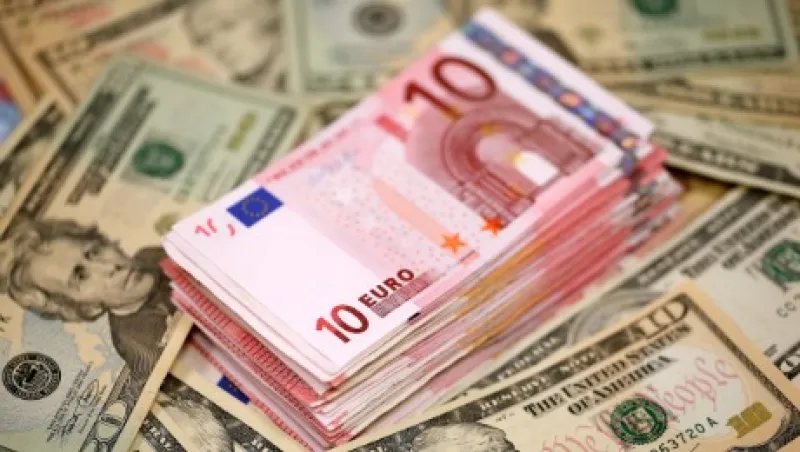With tomorrow as the anticipated release date for a stimulus announcement from the European Central Bank, expectations are riding high for risk assets. With the forecast for action by ECB president Mario Draghi now a strong consensus, there are two key questions: How big will any purchase facility be and how much impact will it have outside inflating the prices for financial assets? The biggest risk for current market prices is that the initial bond buying program will be smaller than what is already priced into sovereign debt markets. With yields at historic lows a mere token liquidity facility for European Union member treasuries and corporate debt would upset expectations. Separately — and perhaps more critically — the fact that record-low interest rates have failed to defeat deflation to date and private-sector lending data that reflects a banking sector still hoarding capital does not bode well for the euro zone’s real economy.
Bank of England holds the course. Minutes from the most recent Bank of England Monetary Policy Committee showed a retreat by hawks within the bank as deflationary fears abroad overrode domestic concerns. Separately, according to new data, November unemployment levels in the U.K. reached a six-year low of 5.8 percent, with wages at a multiyear rate.
Bank of Japan fights deflation. Bank of Japan policymakers today announced benchmark rates and the pace of quantitative easing would remain unchanged. In the accompanying release, bank leaders lowered consumer inflation level projections from 1.7 percent to 1 percent for the upcoming fiscal year starting in April, largely on the back of low oil prices.
U.S. housing starts on deck. U.S. housing starts for December will be released today, with expectations for a marginal uptick in the pace on new construction for the month. November’s data revealed a divergence between single family and multifamily units with the number of homes for groups of families increasing, despite declining overall activity.
Quarterly earnings reporting season continues. Bellwether stock eBay will post earnings for the fourth quarter of 2014 after equity markets close today. Consensus estimates for the online auction site have been reduced in recent weeks, as forecasters factor in the impact of a strong dollar on international sales. Consumer financial company American Express will also report results for the final three months of 2014 after the close today.
Portfolio Perspective: China — Better December Data; Downside Risks Reduced — Jian Chang, Barclays
We see reduced downside risks to our 7 percent growth forecast for China in 2015, balanced by lower energy prices and resilient external demand. Better December data contributed to stronger fourth-quarter GDP growth of 7.3 percent year-over-year (Barclays and consensus numbers put this at 7.2 percent) and full-year growth of 7.4 percent in 2014 (Barclays and consensus at 7.3 percent), close to the government’s target of 7.5 percent. We maintain our 2015 growth forecast of 7 percent and see reduced downside risks. We estimate that falling oil prices, currently about half-passed through to domestic gasoline and diesel prices, could reduce China’s import bills by about 1 percent of its GDP. On the other hand, we think the government will likely use the opportunity to reduce monetary easing and implement fiscal consolidation, as elevated debt levels and large excess capacity remain the top challenges for the medium-term sustainability of the economy.
Look for investment-led growth moderation in 2015 and look for faster consumption growth. We continue to forecast a drop in growth to 6.3 percent quarter-over-quarter, seasonally adjusted annual rate, during the first quarter of this year, but envisage better quality expansion, with decelerating investment and slightly faster consumption growth boosted by lower energy prices. We think China’s so-called new normal means quality is more important than quantity, and that consumption upgrading and stricter environmental controls will remain long-term themes. We expect property investment growth to slow to 5–10 percent in 2015 from 10.5 percent in 2014, despite a likely further improvement in year-over-year property sales in the first quarter. We look for infrastructure investment and manufacturing investment growth rates to stabilize at around 15–20 percent and 10–12 percent, respectively, in 2015–’16.
In our view, we can expect a paced monetary easing cycle and two more cuts in benchmark interest rates of 25 basis points each during the first half of 2015. But we now look for two 50 basis-point cuts in the reserve requirement ratio in 2015, rather than the three previously forecasted. China’s actual fiscal stance in 2015 will be close to neutral or somewhat tightening, in our view, given the government’s commitment to rein in local government borrowing. This is in spite of a higher headline fiscal deficit in 2015 as a percentage of GDP.
Jian Chang is a director and China economist at Barclays Capital in Hong Kong.






